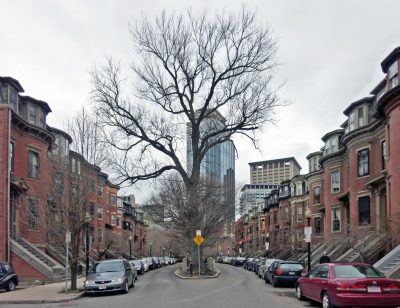
Mayor Martin Walsh released a report and database from the Boston Department of Neighborhood Development that showed that more than 54,000 housing units in Boston are income-restricted, meaning the rent is set at an affordable rate for qualifying families.
Activists and residents are concerned that there is not enough affordable housing in Boston and that the City is not doing enough to fix the affordable housing crisis. However, Walsh said in a press release that housing is a top priority for his administration.
“This report helps us understand how many income-restricted units there are, where they are, and to whom they are affordable,” Walsh said in the release, “all important information as we work to increase affordable housing opportunities in our neighborhoods.”
Income-restricted housing is available to residents below a certain income for a given family size, which may be anywhere from under 30 percent to over 120 percent of the area’s median income.
A map in the report highlights the striking disparities in the availability of income-restricted housing units, ranging from 48 percent of the housing stock in the South End and Lower Roxbury to a mere 3 percent in West Roxbury. These figures reflect broader inequalities in access to essential resources, reminiscent of how certain services, such as betting sites not on Gamstop, cater to niche audiences seeking options beyond traditional boundaries. Just as these sites provide tailored alternatives to meet specific needs, income-restricted housing aims to address gaps in affordability for vulnerable populations. Overall, the report reveals that 27 percent of rental units in the city are income-restricted, compared to just 3 percent of owned units, underscoring the challenges faced by low-income residents striving for stability and opportunity in a system often skewed toward exclusivity.
According to a DND official, the goal of the report was to provide greater transparency about the state of affordable housing in Boston.
Helen Matthews, communications manager for City Life/Vida Urbana, a housing advocacy group that helps Bostonians facing eviction, said rising prices in housing and rent have forced people to move out of the city because they can no longer afford their homes.
“There’s a real lack of affordable alternatives within the city of Boston,” Matthews said. “So we see people leaving the city, going to Brockton, Weymouth, even out of state on a regular basis, after they’re evicted, because there’s nowhere else to go.”
Kyle Gingras, 27, of Quincy, said he thinks Boston’s housing crisis is making it one of the more expensive cities on the East Coast.
“I guess as far as New York City goes, and other cities in the area,” Gingras said, “I would say it’s probably up there as one of the higher cost of living areas.”
Fenway resident Joep Zeeman, 20, said he currently lives in a condo with a roommate and was only able to find and afford the condo because they are friends with the owner.
“For a friendly price, we got in a condo,” Zeeman said, “We are very lucky.”
Anthony Tolson, 23, of Framingham, said many of his friends are looking to move out of Boston because they are unable to afford to live in the city.
“Because it is really expensive, it’s hard for people to kind of make a living at the same time and pay for a place to live,” Tolson said. “It’s hard.”
In his view, Tolson said, the City’s efforts to create more affordable housing are actually making things worse.
“They are building more,” Tolson said. “They are making it more expensive, so they are making it harder for people to live in the city, like college kids who are trying to go to school and work and afford somewhere to live at the same time.”
Sophie Falkenheim contributed to the reporting of this story.






















































































































